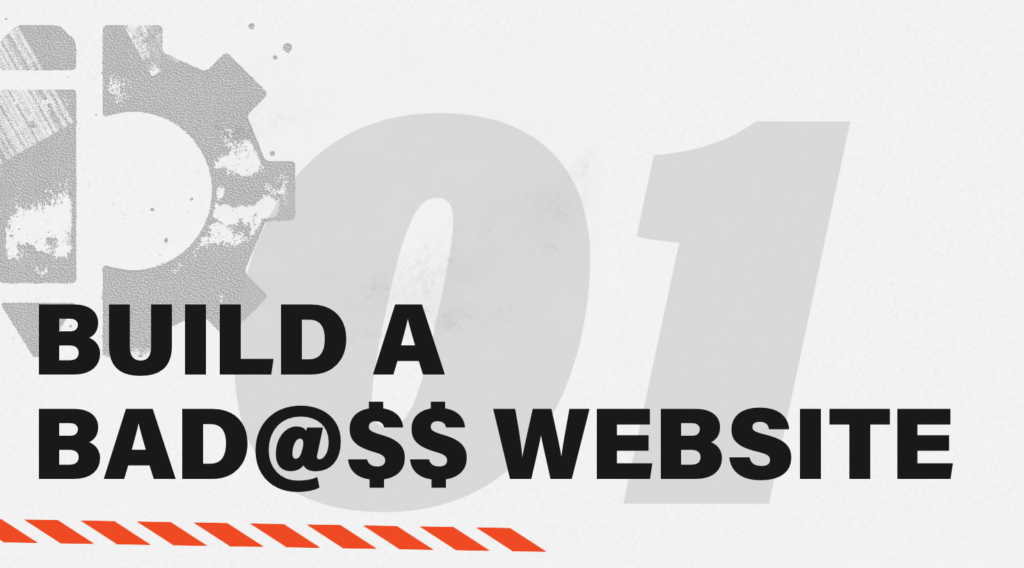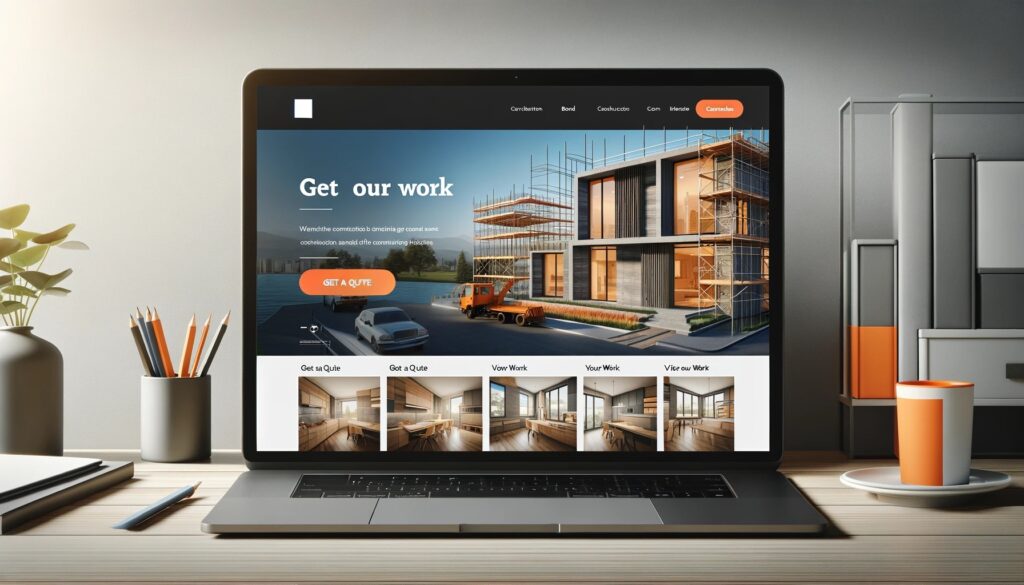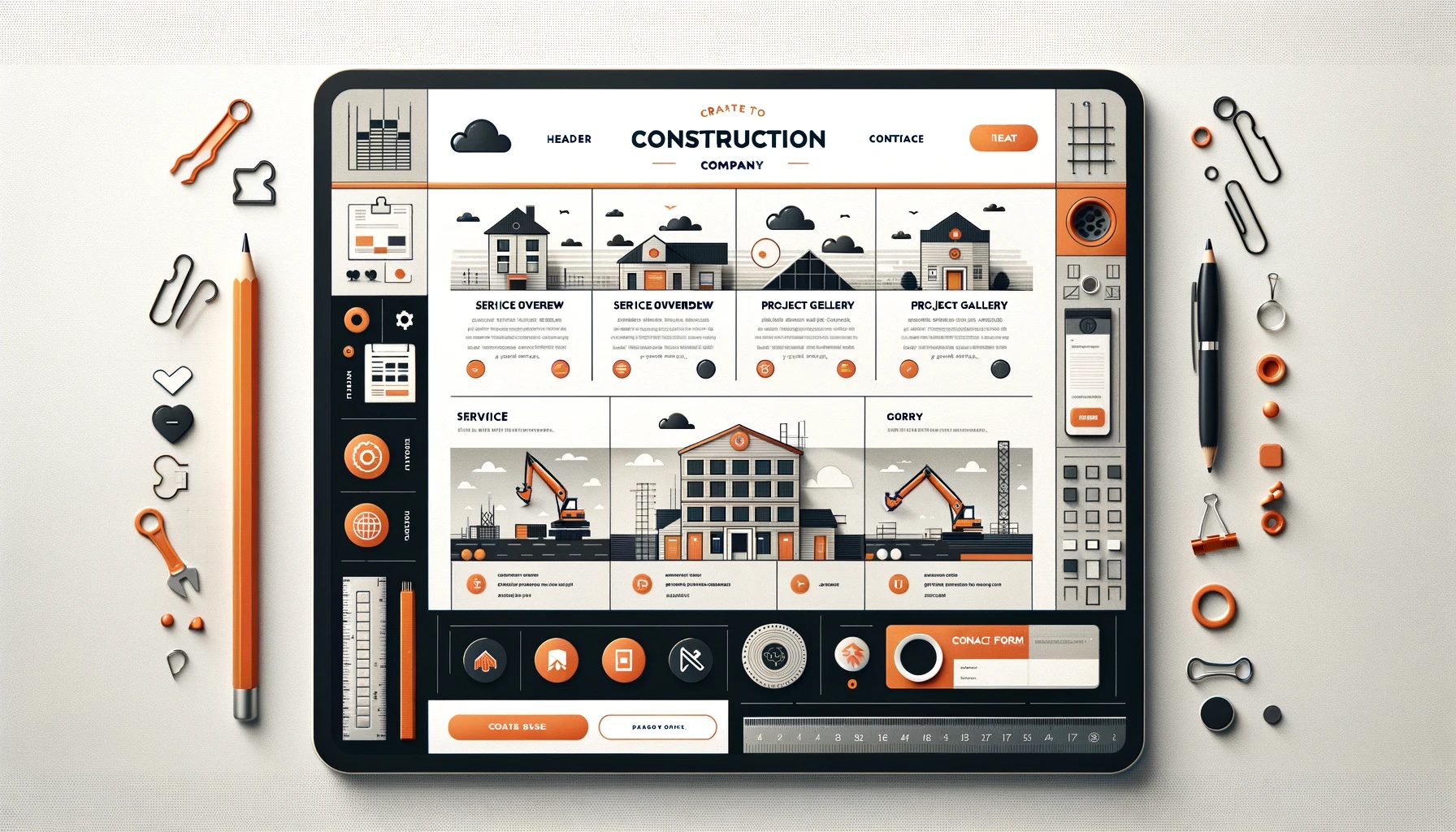In today’s digital age, a contractor’s website is more than just a digital business card—it’s a powerful tool to attract clients, showcase your work, and establish credibility in the construction industry.
However, not all websites are created equal. To stand out and effectively convert visitors into customers, your website must include certain essential features. Here’s a comprehensive guide to the must-haves for any contractor’s website, from responsive design to compelling call-to-actions (CTAs).

1. Responsive Design
With over half of all internet traffic coming from mobile devices, having a responsive website design is no longer optional; it’s a necessity. A responsive website automatically adjusts its layout and content to fit the screen size of the device it’s being viewed on, ensuring a seamless user experience whether your visitors are on a desktop, tablet, or smartphone. This adaptability not only improves user satisfaction but also boosts your site’s search engine rankings, as Google favors mobile-friendly websites.
2. Clear, Professional Branding
Your website should immediately communicate who you are and what you do. Incorporate your company logo, brand colors, and typography consistently throughout the site. This consistency in design helps reinforce your brand identity and makes your site more memorable to visitors. Moreover, professional branding builds trust with potential clients, assuring them they’re dealing with a reputable and established contractor.
3. High-Quality Images and Videos
A picture is worth a thousand words, especially in the construction industry, where visual proof of your work’s quality and craftsmanship is crucial. Include high-resolution galleries of your completed projects to showcase your skills and expertise. Before-and-after shots, for instance, effectively demonstrate your ability to transform spaces. Videos can also be a powerful tool, offering virtual tours of your projects or client testimonials that add credibility and emotional appeal.
4. Easy Navigation
A well-organized website with intuitive navigation is essential for keeping visitors engaged. Use clear, descriptive menu labels that guide users to important sections like Services, Portfolio, About Us, and Contact Information. Implementing a simple, straightforward layout ensures visitors can find the information they’re looking for quickly and easily, increasing the likelihood they’ll stay on your site longer and take action.

5. Compelling Content
Your website’s content should clearly articulate what sets you apart from the competition. Include detailed descriptions of your services, emphasizing any unique skills or specialties. Incorporating a blog can also enhance your website by providing valuable content that positions you as an industry expert. Topics could range from DIY tips for homeowners to the latest trends in construction materials and techniques. Quality content not only engages readers but also improves your site’s SEO, making it more visible in search engine results.
6. Strong Call-to-Actions (CTAs)
Your website should guide visitors towards taking a specific action, whether it’s requesting a quote, scheduling a consultation, or downloading a brochure. Strong, clear CTAs are essential for converting visitors into leads. Use action-oriented language and make your CTAs stand out through contrasting colors or placement. Remember, the goal is to make it as easy as possible for potential clients to take the next step in doing business with you.
7. Testimonials and Reviews
Social proof, such as client testimonials and reviews, is incredibly powerful in building trust with prospective customers. Featuring positive feedback on your website not only showcases your expertise but also reassures visitors of your professionalism and reliability. Make sure to highlight testimonials prominently on your homepage or dedicate an entire section to them.
8. Contact Information
Make it easy for potential clients to get in touch with you by prominently displaying your contact information. This includes your phone number, email address, and physical location if applicable. Consider adding a contact form to make it even more convenient for visitors to reach out with inquiries. Ensuring your contact details are easily accessible across your website reduces barriers for potential clients to initiate contact.
9. Fast Load Times
Website speed is a critical factor in user experience and SEO. Slow-loading pages can frustrate visitors and lead them to leave your site in favor of a competitor’s. Optimize your website’s load time by compressing images, leveraging browser caching, and minimizing the use of large files and scripts. Regularly testing your website’s speed and making necessary adjustments ensures it remains fast and user-friendly.
10. SEO Optimization
Last but certainly not least, your website must be optimized for search engines to increase its visibility online. This involves using relevant keywords in your content, optimizing meta tags and descriptions, and ensuring your site structure is search engine friendly. Local SEO is particularly important for contractors, so be sure to include location-based keywords and list your business in local directories and Google My Business.
Conclusion
Creating a contractor website that attracts and converts visitors requires attention to detail and an understanding of what potential clients are looking for. By incorporating these essential features—from responsive design and professional branding to compelling CTAs and strong SEO—you’ll set the foundation for a successful online presence.






Leave a Reply